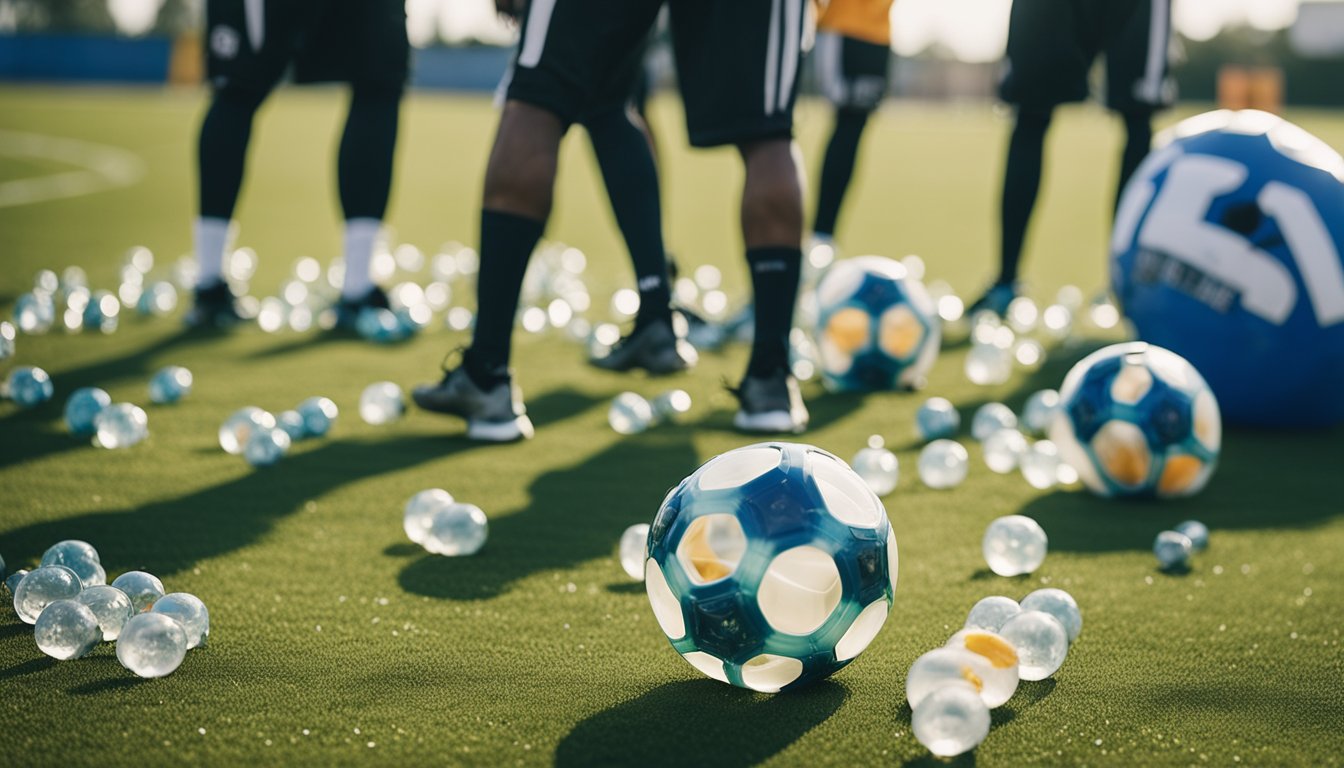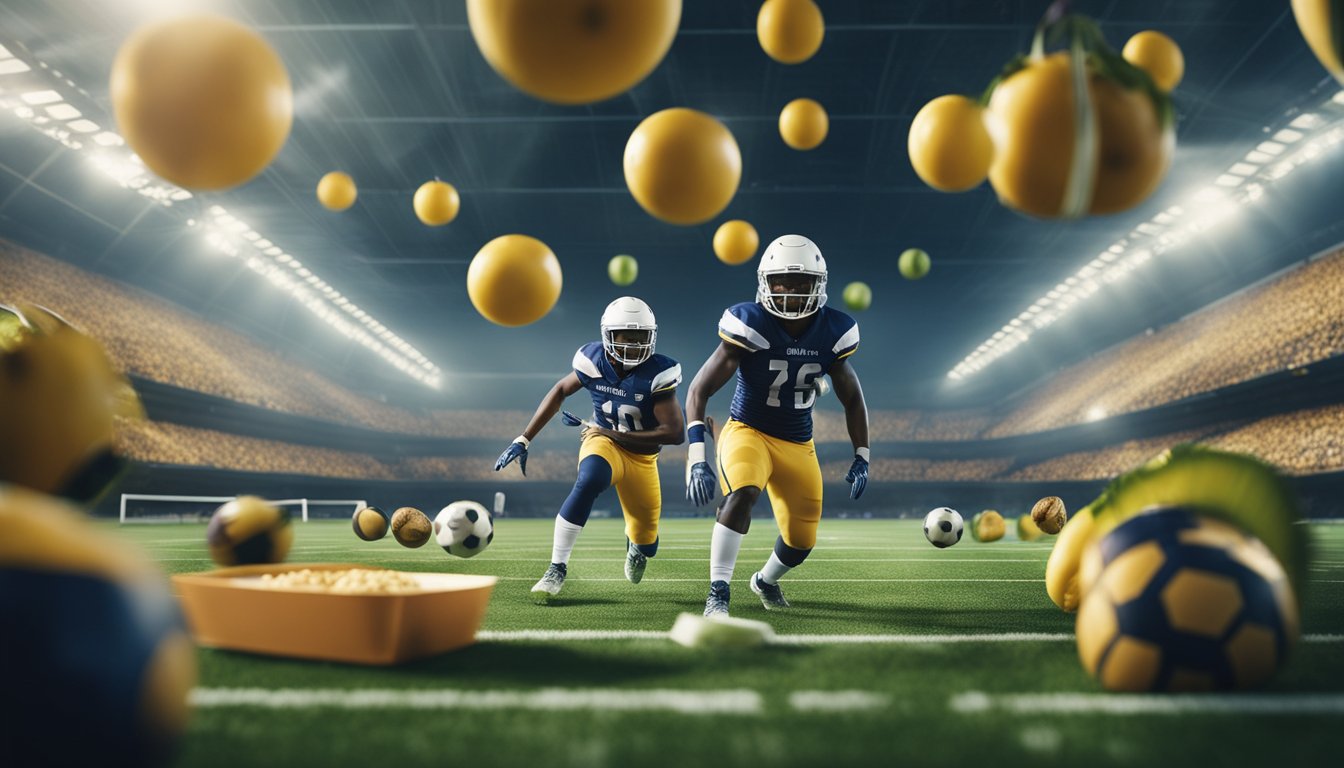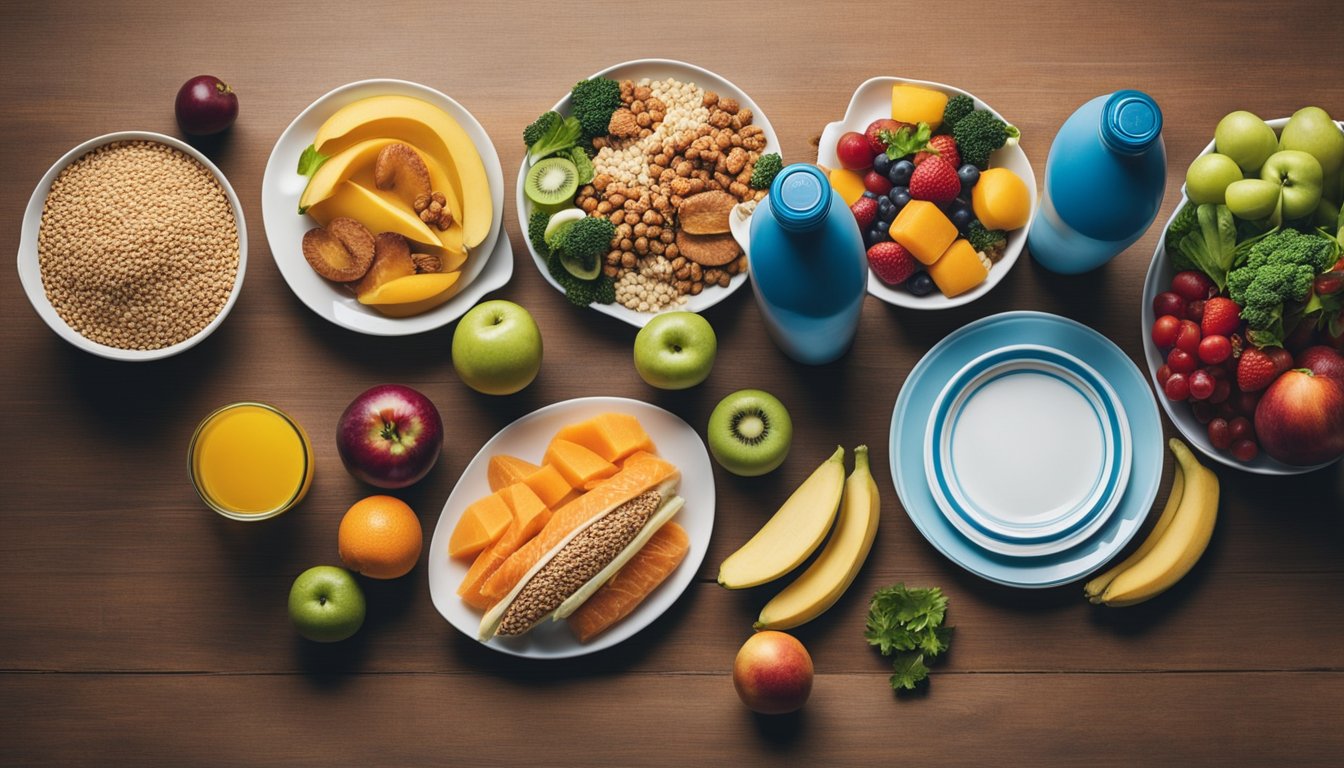Late updated: 26 Aug 2024 10:08
Written by: Emma Saunders
Bubble Football Nutrition Tips For Peak Performance: Fuel Your Game
When it comes to bubble football, optimal nutrition can spell the difference between winning and losing. Ensuring that our bodies are properly fuelled provides the energy, endurance, and recovery needed to excel on the field. Consuming the right nutrients at the right times is crucial for peak performance in bubble football.

A balanced diet rich in lean proteins, complex carbohydrates, and healthy fats is essential. This not only enhances stamina but also supports muscle recovery post-match. Hydration remains a key player in maintaining top form, especially considering the physical exertion involved.
Moreover, optimising our nutrition around training and match days can significantly boost our performance. This involves strategic meal timing and choosing nutrient-dense foods that aid in sustaining energy levels and accelerating recovery. Let’s dive into the best nutrition tips tailored for bubble football players striving for peak performance.
Key Takeaways
- Balanced diet with lean proteins, complex carbs, and healthy fats.
- Hydration is crucial for maintaining performance.
- Strategic nutrition around training and match days.
Building a Balanced Diet for Footballers

Athletic performance in bubble football relies on a structured and balanced diet that includes the right mix of macronutrients, essential micronutrients, and adequate hydration. This ensures that players maintain peak energy levels, recover quickly, and stay focused throughout matches.
Macronutrients: Fuel for the Game
To perform at our best, we need a balanced intake of carbohydrates, protein, and fats. Carbohydrates are crucial as they provide the energy required during high-intensity matches and training sessions. Whole grains, fruits, and vegetables are excellent sources of complex carbohydrates that help sustain energy levels.
Protein is essential for muscle repair and growth. Incorporating lean proteins like chicken, fish, and plant-based options ensures muscular strength and recovery. Healthy fats, found in nuts, seeds, and avocado, play a vital role in supporting overall health and providing a steady energy supply.
Micronutrients: Essential for Peak Performance
Vitamins and minerals are critical for various bodily functions, including muscle contractions, immune support, and energy metabolism. A diet rich in fruits and vegetables delivers a broad range of micronutrients. For example, iron, crucial for oxygen transport in the blood, can be found in leafy greens and lean meats.
Calcium and vitamin D are necessary for bone health and muscular function. Including dairy products, fortified alternatives, and sunlight exposure helps in meeting these nutrient needs. Omega-3 fatty acids, present in fish and flaxseeds, support heart health and reduce inflammation, aiding recovery.
Hydration: Sustaining Energy and Focus
Staying hydrated is essential for maintaining energy and cognitive functions. Water is indispensable, but sports drinks can also be beneficial, particularly in replenishing electrolytes lost during intense physical activity. Sodium, potassium, and magnesium are key electrolytes that need to be replenished to avoid dehydration.
Implementing effective hydration strategies involves sipping water regularly, not just during matches, but throughout the day. Monitoring urine colour can help us stay aware of our hydration status, aiming for a light straw colour as a good indicator.
Ensuring we cover these three main areas of nutrition helps us optimise our performance in every game, keeping energy levels high and aiding swift recovery.
Optimising Nutrition for Training and Match Days

To ensure peak performance and swift recovery, it’s essential to focus on both pre-game meal planning and post-workout nutrition. This approach supports muscle repair, refuels glycogen stores, and maintains optimal immune function.
Pre-Game Meal Planning
Before a match or training session, our focus should be on fuelling the body with appropriate nutrients. A balanced meal rich in complex carbohydrates is ideal, as it ensures sustained energy release. Options like whole grain pasta, brown rice, and oatmeal help maintain endurance levels.
Proteins are crucial too. Incorporate lean meats, fish, or plant-based proteins like beans and lentils. This supports muscle repair and reduces injury risk. Aim to consume this meal about 3-4 hours before the activity to allow for proper digestion.
Small snacks close to the game, such as a banana or energy bar, provide a quick release of glucose. Hydration is equally key; drinking water regularly ensures that we start the game fully hydrated.
Recovery Nutrition Post-Workout
Post-workout nutrition is vital for muscle recovery and inflammation reduction. We should consume a combination of carbohydrates and proteins within 30 minutes to an hour after training or a match. This helps replenish glycogen stores and kick-starts muscle repair.
A typical recovery meal might include a protein shake with added fruits for quick carbohydrates or a balanced meal with chicken and sweet potatoes. Hydration post-match is also critical; rehydrating with water or sports drinks within 4-6 hours helps replace fluids lost during the exercise.
Healthy fats like avocado and nuts can be added to the recovery meal to support immune function and further reduce inflammation. Consistently following these nutritional strategies aids not only in recovery but also prepares us for future physical demands.
Frequently Asked Questions
In this section, we address common concerns regarding nutrition for athletes engaging in bubble football. From daily eating habits to specific food choices, we provide clear and actionable advice.
What dietary regimen should athletes follow for optimal performance?
Athletes should focus on a balanced intake of lean proteins, healthy fats, and complex carbohydrates. Including nutrient-dense foods like fruits, vegetables, and whole grains in daily meals is crucial. Hydration is equally important, requiring consistent fluid intake throughout the day.
How can football players tailor their diet for competitive match days?
On match days, players should prioritise complex carbohydrates for sustained energy. A pre-game meal should be consumed 3-4 hours before the match and include lean proteins and whole grains. During the game, small, digestible snacks like fruit or energy bars can maintain energy levels. Post-game recovery should involve protein and electrolyte-rich fluids to aid muscle repair.
What nutritional guidelines benefit high school footballers' performance?
High school footballers need a diet rich in proteins, complex carbohydrates, and healthy fats. Snacks like yogurt, nuts, and fruit can provide quick energy during breaks. Maintaining a consistent eating schedule and staying hydrated helps in managing energy levels and recovery.
Which specific foods enhance athletic capability and endurance?
Lean meats, such as chicken and turkey, offer quality proteins. Eggs and dairy provide essential nutrients for muscle recovery. Whole grains, including oatmeal and brown rice, offer sustained energy. Incorporating fresh fruits and vegetables ensures necessary vitamins and minerals are met.
In what ways should a female athlete's nutritional plan differ to support peak condition?
Female athletes may require additional iron-rich foods like spinach and lean red meats to prevent deficiencies. Calcium and vitamin D from dairy or fortified alternatives support bone health. Balancing macronutrients while monitoring caloric intake ensures optimal energy without excess weight gain.
What is the ideal seven-day nutrition blueprint for a football player aiming for peak fitness?
An ideal weekly meal plan includes:
- Day 1: Grilled chicken, quinoa, and mixed vegetables.
- Day 2: Oatmeal with fruit and nuts for breakfast, salmon with sweet potatoes for dinner.
- Day 3: Whole-grain pasta with lean beef.
- Day 4: Greek yogurt, berries, and granola for breakfast, turkey wraps for lunch.
- Day 5: Stir-fried tofu with brown rice.
- Day 6: Protein smoothie for breakfast, grilled fish, and roasted vegetables for dinner.
- Day 7: Restorative hydration with electrolyte drinks, balanced meals with lean proteins and complex carbs.
